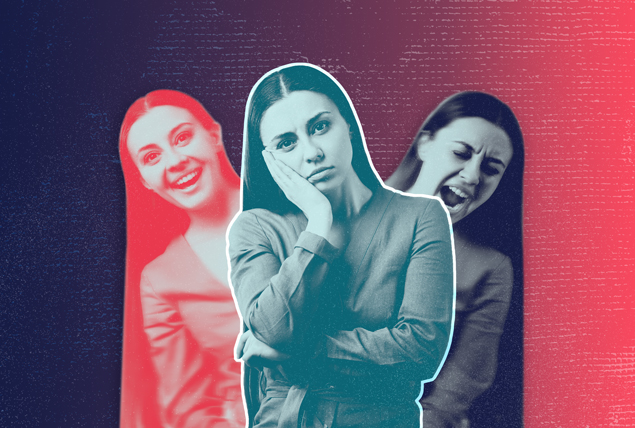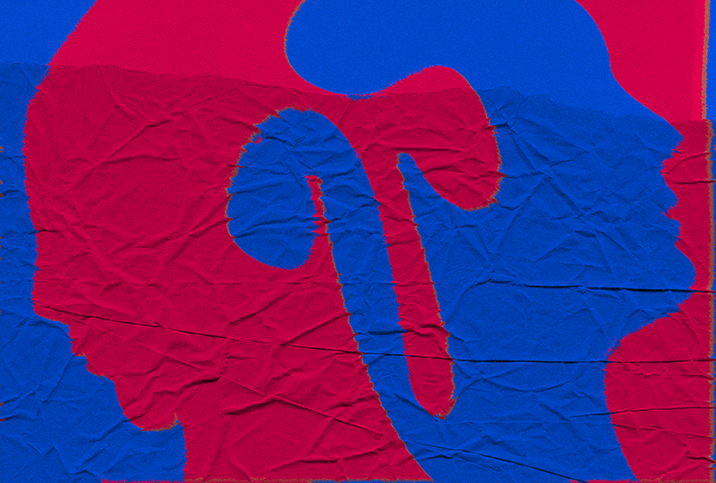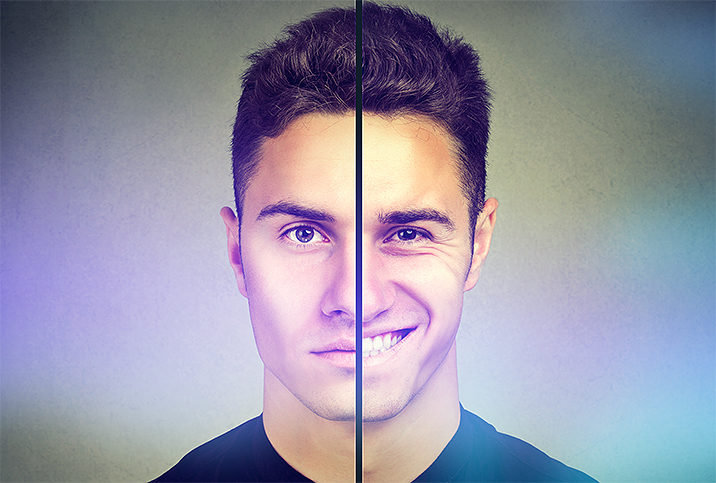What Is Bipolar Disorder and How Does It Impact Your Libido?

There's a general understanding that mental health disorders such as bipolar disorder are going to have an impact on one's overall quality of life. But a less discussed aspect of this condition is its social life implications and how it can affect your dating life, sexual health and intimate relationships.
Bipolar disorder is a brain disorder that can reorient a person’s energy and mood, as well as their ability to function. The cause is unknown but it’s thought that altered brain structure and chemistry, environment and genetics are possible factors. The onset of bipolar disorder typically occurs during a person's early 20s. This disorder affects about 2.6 percent of American adults.
There are effective and tolerable treatments for bipolar disorder as long as the disorder is properly diagnosed and the patient receives proper care.
Learn more about bipolar disorder, its effects on relationships, and how medical experts treat the condition to improve overall physical and mental well-being and your sex life. Bipolar disorder will likely affect your libido.
What is bipolar disorder?
Bipolar disorder is a mental illness most often characterized by extreme mood swings, according to Edward Ratush, M.D., a practicing psychiatrist in New York City and the co-founder of the national holistic telepsychiatry platform SOHOMD.com.
"People with bipolar disorder will experience manic episodes of high energy along with depressive episodes filled with sadness and hopelessness," he said. "When it goes untreated, it's like sitting on an emotional see-saw, rapidly hitting high points and then crashing down low, rarely reaching equilibrium in the middle for very long.
"Understandably, these mood swings can affect various aspects of an individual's life, including sex and intimacy."
Bipolar disorder is characterized by a few different types, including bipolar I and bipolar II and unspecified types, according to Grant Brenner, M.D., a board-certified psychiatrist and psychotherapist in New York City and the co-founder and former CEO of Neighborhood Psychiatry & Wellness.
"Bipolar disorder used to be called manic-depressive illness because, stereotypically, people with bipolar disorder experience highs or euphoria and lows or dysphoria or depression," he said.
Those are called episodes in psychiatric terms.
"Bipolar I is generally more severe, with both mania and depression, while bipolar II does not include full manic episodes, rather depressive episodes and hypomania," Brenner said. "There is a mood-cycling disorder called cyclothymic disorder, with less severe periods of elevated mood and depression."
Bipolar disorders can be highly impairing, he added, and diagnosis and treatment are often delayed because patients may appear to have major depressive disorder or unipolar depression.
"Optimizing bipolar treatment itself to regulate moods and address any sexual side effects is essential to long-term stability and satisfaction," Brenner said. "Untreated bipolar disorder tends to get worse over time—a phenomenon known as kindling—and increases the chances of future cognitive problems including increased dementia risk. Proper treatment can substantially reduce this risk."
Brenner noted there are effective and tolerable treatments for bipolar disorder as long as the disorder is properly diagnosed and the patient receives proper care.
What are the symptoms of bipolar disorder?
The general characteristic of all types of bipolar disorder is mood instability, but the specific symptoms depend on the subtype of bipolar disorder.
"Bipolar disorder can include phases of elevated mood and activity, which if severe, meet criteria for a manic episode, and if less severe but clinically significant are called hypomania," Brenner said. "Manic and hypomanic episodes include elevated mood or euphoria; reduced sleep and perceived need for sleep; increased goal-directed activity; increased energy, impulsivity and recklessness; racing thoughts, distractibility, loss of insight and [potentially] psychosis."
The medical term for a loss of insight is anosognosia and involves the individual not realizing or believing that they are ill even when others tell them there is a problem.
If you are diagnosed with bipolar disorder, the best strategy is to try and have an open discussion with your partner.
"People with bipolar disorder may have limited insight into the nature of their illness and believe there is nothing wrong with them, especially during times they are feeling better or becoming manic and at those times may stop medications," Brenner said. "This may lead to an exacerbation of illness and frustration from others, though it is not intentional."
Phases are characterized by a depressive mood—sometimes referred to as depressive episodes—and appear clinically similar to major depressive disorder.
There are mixed episodes, which involve features of both mania and depression. For example, while a person may have increased energy and reduced sleep among other symptoms of mania, they are in a negative emotional state characterized by irritability rather than euphoria, Brenner explained.
Symptoms and their severity could vary pending the type of episode the person is experiencing according to Tom Murray, Ph.D., a certified sex therapist in North Carolina and author of "Making Nice with Naughty."
He explained that during a manic episode, a person with bipolar disorder may experience some of the following symptoms:
- Agitation or irritability
- Decreased need for sleep
- Elevated or irritable mood
- Grandiosity or inflated self-esteem
- Impulsive or reckless behavior, such as spending sprees, substance use or sexual promiscuity
- Increased energy, restlessness or hyperactivity
- Poor judgment or impaired decision-making
- Racing thoughts or rapid speech
During a depressive episode, a person with bipolar disorder may experience:
- Depressed mood or feelings of emptiness
- Difficulty concentrating or making decisions
- Fatigue or loss of energy
- Feelings of worthlessness, guilt or hopelessness
- Loss of interest or pleasure in activities they once enjoyed
- Recurrent thoughts of death or suicide
- Significant changes in appetite, weight or sleep patterns
"It is important to note that not everyone with bipolar disorder experiences the same symptoms, and the severity and frequency of episodes can vary from person to person," Murray said. "If you or someone you know is experiencing symptoms of bipolar disorder, it is important to seek professional help from a mental health provider."
How can bipolar disorder affect libido?
"Because sexual desire is intricately linked to an individual's emotions and energy, bipolar disorder impacts libido the same way it does other human behaviors," Ratush said.
So what does this mean practically, given the symptom presentation of bipolar disorder and the hormonal and emotional contributors to libido?
"During manic episodes, for example, individuals with bipolar disorder may experience hypersexuality and increased sexual desire," he said. "During depressive episodes, individuals may experience a decrease in sexual desire or functional ability. This lack of balance can wreak havoc on relationships, especially if the cause of the instability—bipolar disorder—is not made known to one or both partners."
Brenner said when people are in manic or hypomanic states, they often experience an increase in libido and sexual behavior.
"People may have an expansive mood and be more social than usual, with impulsivity and impaired judgment," Brenner said. "This often leads to increased sexual activity and poor decision-making with potentially significant negative consequences. These can include damaging long-term committed relationships through infidelity, unsafe sex leading to contracting sexually transmitted diseases, unintended pregnancy, and often regret or guilt, among other related consequences."
Someone with bipolar disorder experiencing a depressive episode exhibits the opposite: a decrease in libido. This could be due to several causes.
"[They may experience] a lack of energy, feelings of hopelessness or worthlessness, or an overall loss of interest in activities they once enjoyed, including sex," he said. "They may also struggle with feelings of worthlessness or guilt, which can affect their ability to enjoy sexual experiences. Some medications used to treat bipolar disorder, such as mood stabilizers and antipsychotics, can also cause side effects such as decreased libido or sexual dysfunction."
If you are diagnosed with bipolar disorder, the best strategy is to try and have an open discussion with your partner. Similarly, if you're concerned your partner may be dealing with bipolar disorder but has not felt safe or comfortable disclosing their diagnosis, try to foster an empathetic, supportive environment for those discussions to happen.
You may find it useful to seek couples counseling to facilitate this type of communication.


















